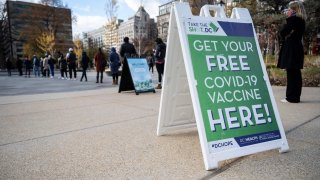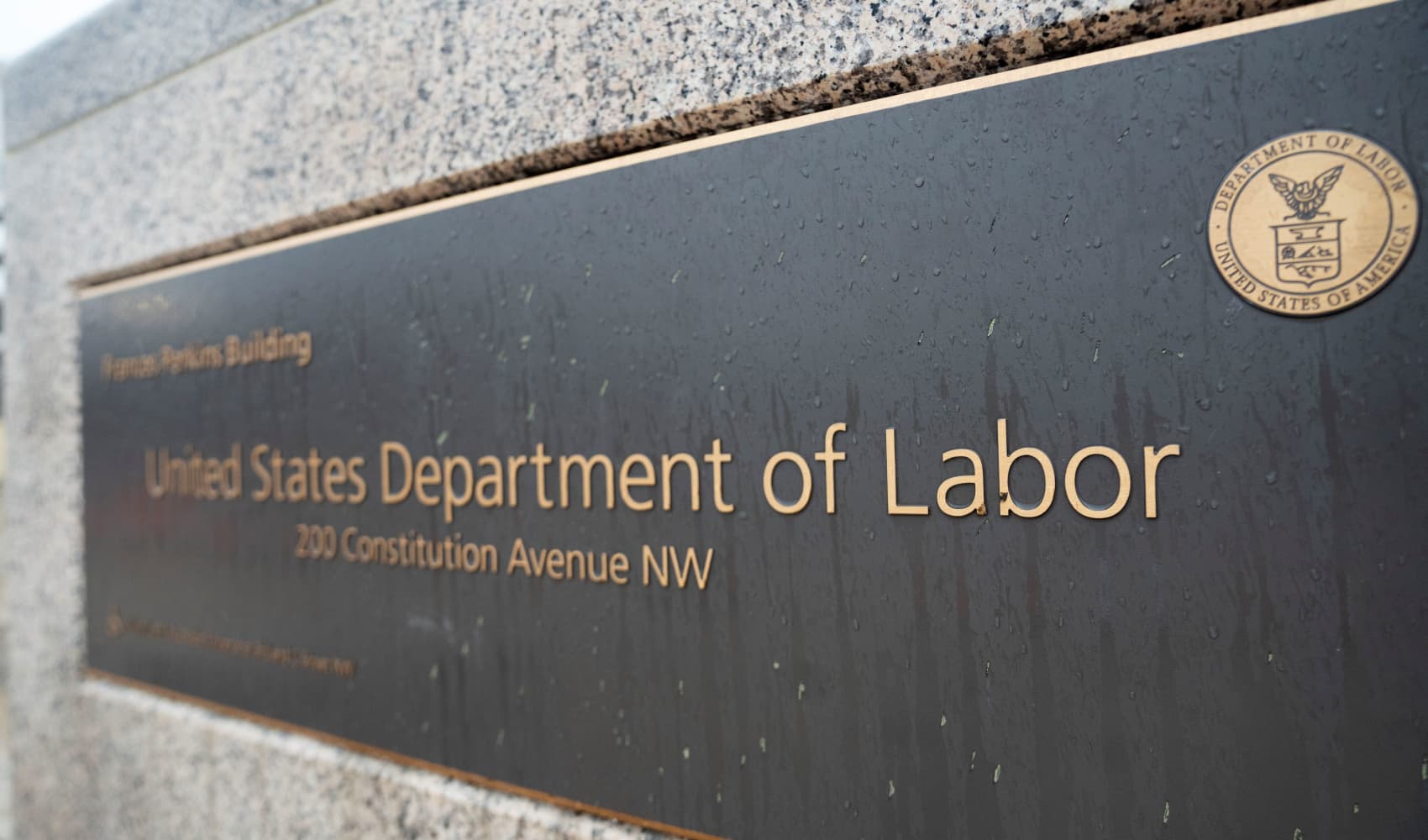
- Nearly 2.2 million vaccine doses were reported administered for a 24-hour period ended Thursday, CDC data shows.
- Vaccinations peaked at around 3.4 million per day, according to a seven-day average, in April after the shots first became available.
- Vaccinations were on the rise again heading into Thanksgiving and crossed the 1.5 million average shots per day mark in mid-November, many of which have been booster doses.
Covid vaccinations spiked late this week as a rising number of states confirmed their first cases of the highly mutated omicron variant.
Centers for Disease Control and Prevention data shows nearly 2.2 million shots in arms were reported to the agency over a 24-hour period ended Thursday, the largest single-day total since May.
Roughly half of those shots were booster doses, White House Covid-19 data director Cyrus Shahpar wrote in a tweet Thursday, and nearly a third were initial doses, or people getting their very first shots. Some 4.8 million shots were reported Monday, but that figure represents data from a handful of days over the long Thanksgiving weekend, according to the CDC.
Feeling out of the loop? We'll catch you up on the Chicago news you need to know. Sign up for the weekly Chicago Catch-Up newsletter here.
Walgreens has seen increased demand for both vaccinations and testing over the past week, the company said in an emailed statement Friday. On Saturday, the pharmacy chain is scheduled to release its weekly batch of approximately 1 million new appointments across its stores. About 20% of appointments were available nationwide over the past week, it said.
Money Report
U.S. health officials have been pushing vaccines through a public outreach campaign all year and vaccine mandates for certain workers in recent months. On Monday, the CDC strengthened its recommendation for Covid booster shots, telling all adults that they "should" get an additional dose amid growing concern about the newly identified omicron variant.
The CDC cleared booster shots for all adults in early November, but the agency is now giving its strongest recommendation that adults "should" get an additional shot six months after their initial Pfizer or Moderna series, or two months after their first Johnson & Johnson shot.
Vaccination rates have been increasing recently, but at a slower pace. Nearly 60% of Americans are fully vaccinated, according to CDC data as of Thursday. It has been nearly four months, though, since that figure reached the 50% mark in early August. It took just over two months for the nation to go from 40% to 50% and less than one month to go from 30% to 40%.

About 70% of Americans have received at least one shot, and 21% of fully vaccinated Americans have received a booster shot.
Vaccinations peaked at around 3.4 million per day, according to a seven-day average, in April after the shots first became available, and saw another bump with the onset of the delta variant, nearing an average of 1 million shots per day in the late summer months. Vaccinations were on the rise again heading into Thanksgiving and crossed the 1.5 million average shots per day mark in mid-November, many of which have been booster doses.
The omicron variant had been detected in five U.S. states as of Thursday night. The delta strain remains the dominant variant in the country, accounting for more than 99% of all new cases and pushing the number of Covid hospitalizations higher once again.
The country is far from the delta wave's peak in early September, when more than 100,000 patients were hospitalized with the virus. Still, about 57,000 Americans are hospitalized with Covid, according to a seven-day average of Department of Health and Human Services data through Thursday, up 10% over the previous week and 22% from the country's most recent low point on Nov. 10.
— CNBC's Spencer Kimball and Melissa Repko contributed to this report.






